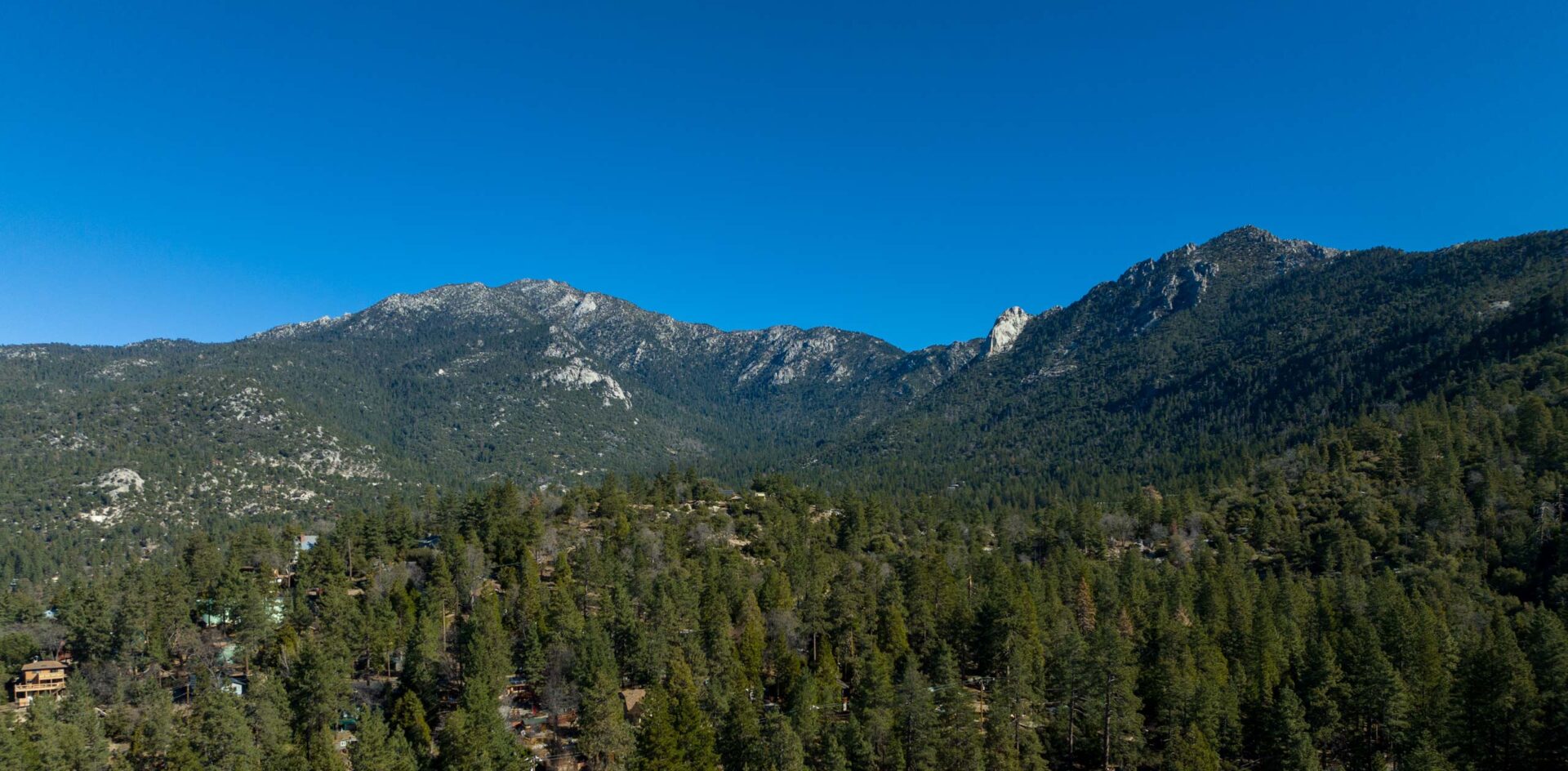STEM Activities
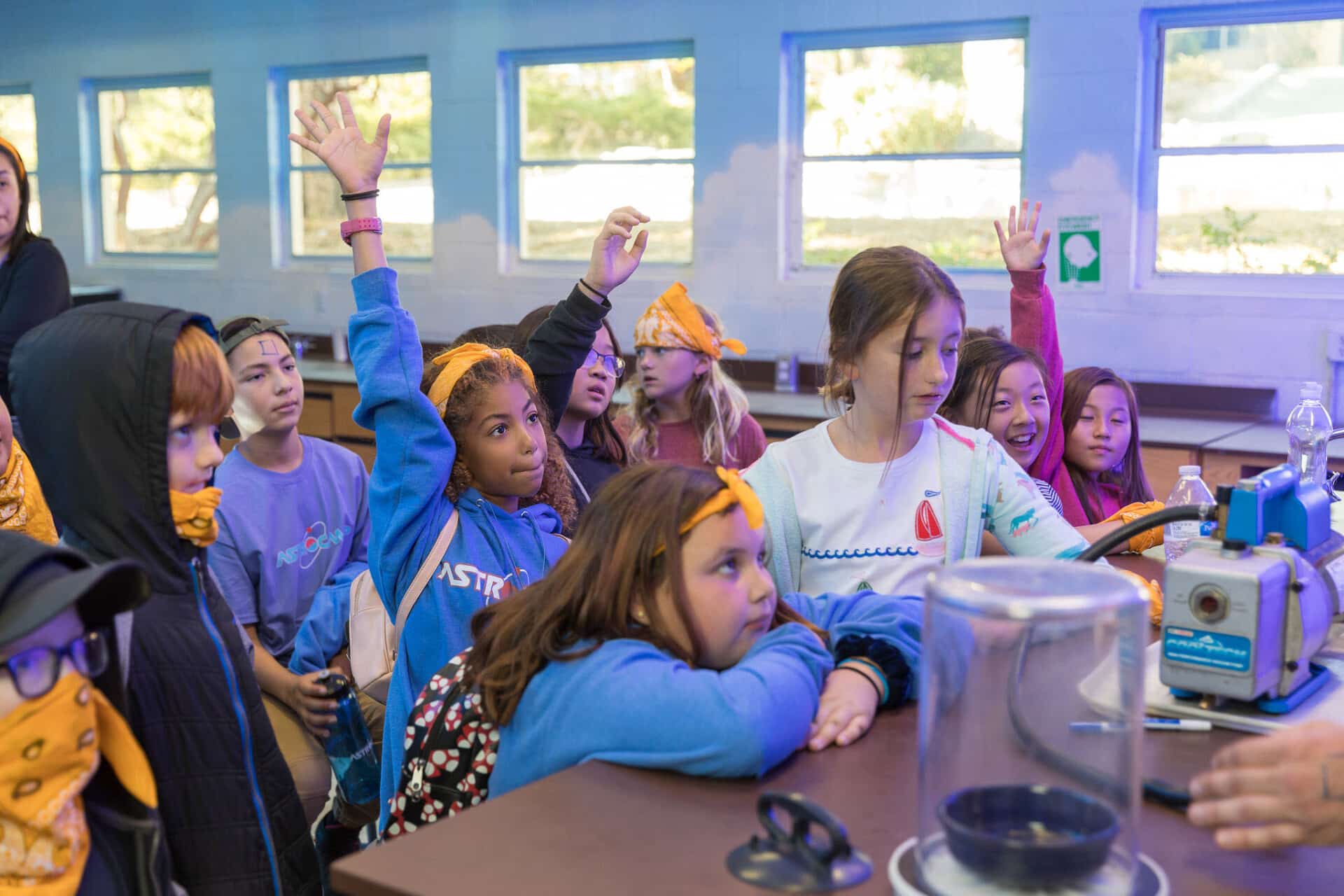
STEM Activities
AstroCamp offers many fun, exciting, and educational physical science and astronomy activities that allow students to explore science in an engaging and hands-on way.
⚙︎ designates an engineering class
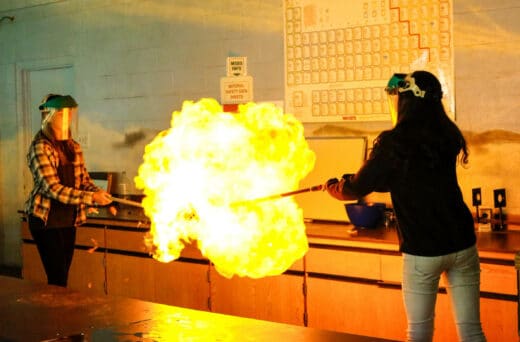
Atmosphere & Gases
Students dig into the properties of pressure, temperature, density as they experiment with various gases.
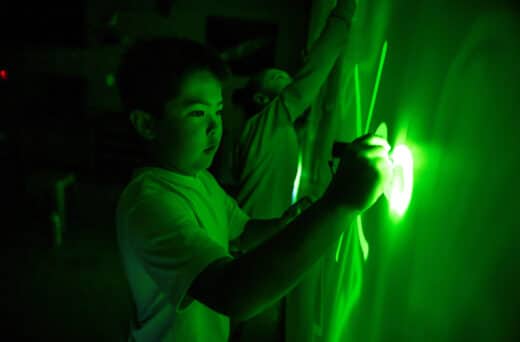
Lights & Lasers
Students will explore the nature of light through hands-on experience with lasers, a phosphorescent wall, diffraction science, and much more!
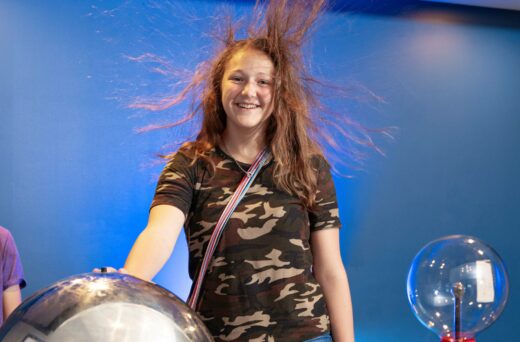
Electricity & Magnetism
Instructors lead students in performing over twenty experiments to discover the principles of electricity and magnetism.
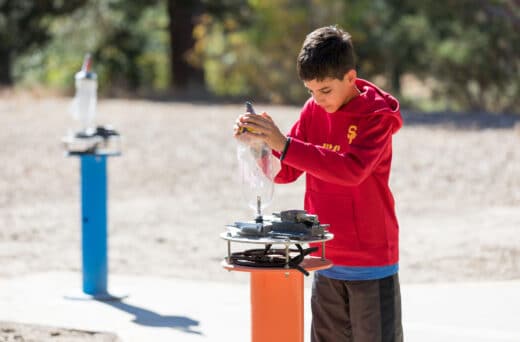
Building and Launching Rockets ⚙︎
Students will build their own rockets out of a two-liter bottle to launch on our launch pad!
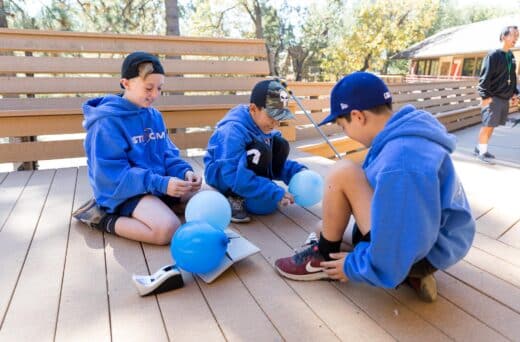
Cosmic Lander ⚙︎
Students will work in small groups to design and build their own “cosmic landers” to crash test on our planetary surfaces!
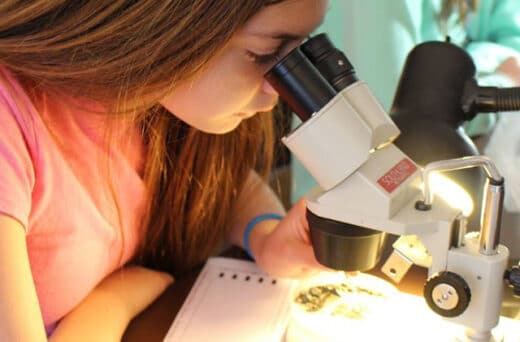
Micrometeorites
Students learn about meteorites, hunt for them around camp with powerful magnets, and find their own piece of the solar system that they can take home!
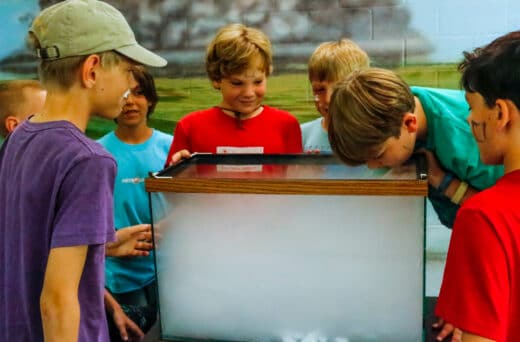
Planetary Sciences
Students discover the nature of the planets in our solar system while hypothesizing what extra-terrestrial life might be like.
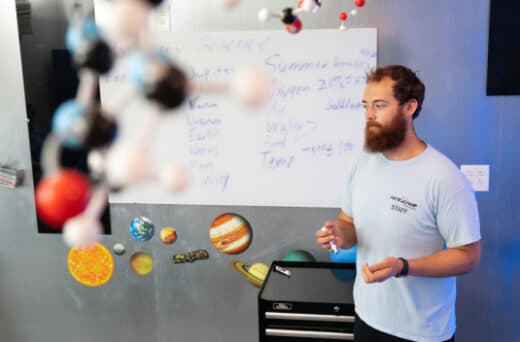
Solar Studies
Students safely view solar features through telescopes using special solar filters and perform experiments using solar energy, ending with a treat baked in our Sun Ovens!
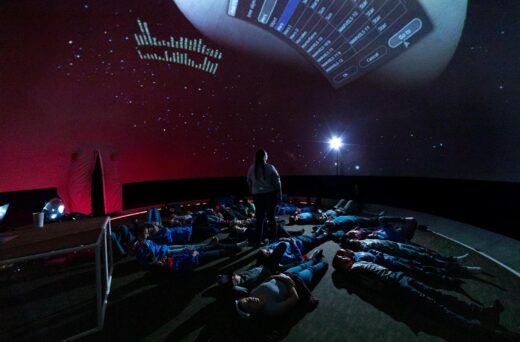
Planetarium
Students will learn about the science behind many of the things in our night sky, as well as the mythology associated with them.

Frequently Asked Questions
View All FAQsWhat is the typical weather like?
The weather at AstroCamp is extremely variable. Because of the elevation, temperatures here are typically cooler than in the rest of Southern California. It is generally clear and sunny during the day, but temperatures drop rapidly at night. It can snow or rain anytime between October and early June. Please check the Idyllwild weather conditions at noaa.gov before packing. If road conditions are severe, we will contact your lead teacher directly.
What do you do if it rains?
During rainy/snowy days, we try to continue with program as planned. We are able to run almost all of our programs in the rain or snow. If the rain/snow is too heavy (or includes lightning) and does not permit the scheduled program, we always have fun and exciting indoor alternatives.
Will I encounter wildlife?
AstroCamp is located in a forested area, so it is possible to encounter wildlife such as deer, snakes, and squirrels around camp. While these are all wild animals and we cannot control their presence, instructors and administrators thoroughly educate guests about local wildlife and how to appropriately behave around or respond to these animals.
How are AstroCamp instructors hired and trained?
We take pride in employing a well-trained staff of the highest quality. Our instructors come to AstroCamp from all over the United States and occasionally from overseas. We have approximately 28 instructors on staff at any given time. All instructors have a bachelor’s degree in a STEM field (typically in physics or astronomy), a strong desire to teach, and a love for working with children. Instructor training consists of two weeks of intensive program and teaching training. Additionally, instructors receive Lifeguard training through the American Red Cross, which includes CPR/AED for the Professional Rescuer, First Aid, and Emergency Oxygen Administration.
Do you screen your staff and do background checks?
All staff must satisfactorily complete a criminal history record check before beginning work. This screening includes a self-disclosure form, a public records check, and annual check of the U.S. Department of Justice National Sex Offender Public Website. These criminal history records are reviewed by the Guided Discoveries Human Resources Director prior to the employee beginning work and must conform to Guided Discoveries’ hiring thresholds.
